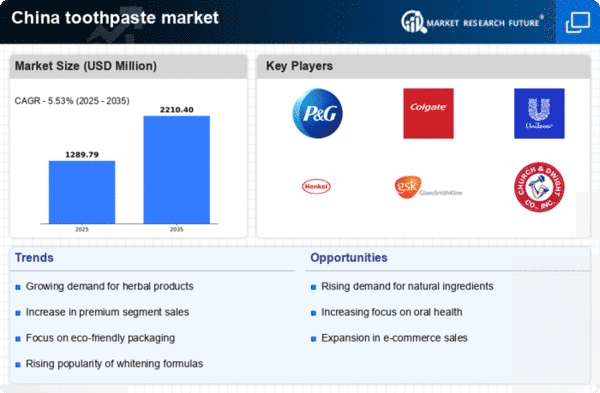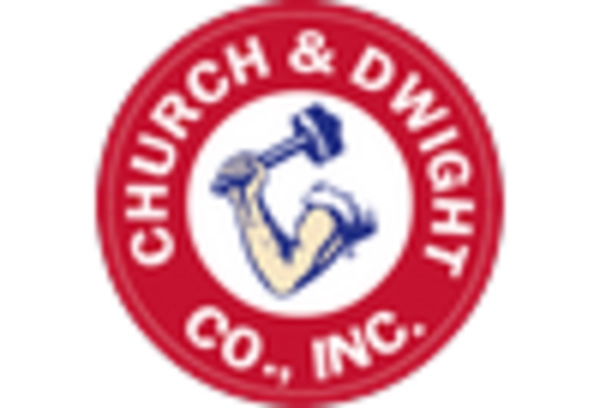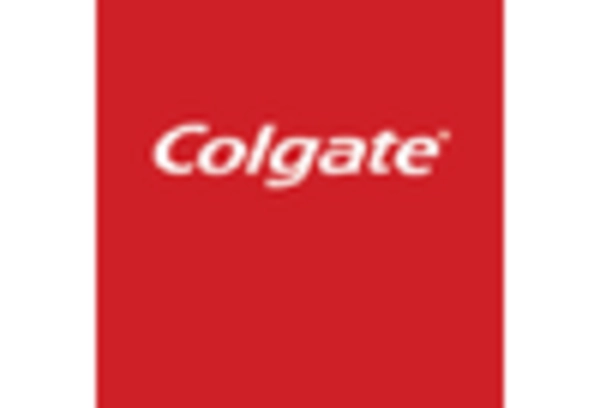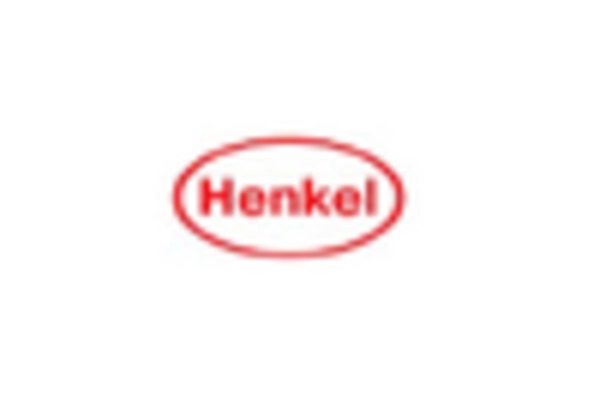Sustainability Trends
Sustainability is becoming a pivotal concern for consumers in China, influencing their purchasing decisions in the toothpaste market. As environmental awareness grows, there is a noticeable shift towards eco-friendly packaging and natural ingredients. Brands that adopt sustainable practices are likely to attract a loyal customer base that values environmental responsibility. Recent surveys indicate that approximately 30% of consumers are willing to pay a premium for sustainable products. This trend suggests that the toothpaste market could see a significant transformation as companies adapt to meet the demands of environmentally conscious consumers.
Rising Disposable Income
As disposable income levels in China continue to rise, consumers are more willing to invest in premium oral care products. This trend is particularly evident in urban areas, where higher income brackets are associated with a greater demand for high-quality toothpaste. The toothpaste market is likely to benefit from this economic shift, as consumers opt for brands that offer advanced formulations and unique features. Market analysis suggests that the premium segment of the toothpaste market could see growth rates of around 10% annually, driven by this increase in disposable income.
Increasing Health Awareness
The growing awareness of health and wellness among consumers in China is driving the toothpaste market. As individuals become more conscious of their oral hygiene, they are increasingly seeking products that promote dental health. This trend is reflected in the rising demand for toothpaste that offers additional benefits, such as whitening and sensitivity relief. According to recent data, the market for specialized toothpaste has expanded by approximately 15% in the last year. This shift indicates a potential for further growth in the toothpaste market as consumers prioritize products that align with their health goals.
Innovative Product Development
Innovation plays a crucial role in the toothpaste market, with manufacturers continuously developing new formulations and packaging to attract consumers. The introduction of products that cater to specific needs, such as charcoal toothpaste or those containing probiotics, reflects a trend towards customization in oral care. This innovation is not only appealing to health-conscious consumers but also to younger demographics who are more inclined to try novel products. The market for innovative toothpaste solutions is projected to grow by 12% over the next few years, indicating a robust opportunity for brands that prioritize research and development.
Influence of Social Media Marketing
Social media platforms are increasingly shaping consumer preferences in the toothpaste market. Brands are leveraging these platforms to engage with consumers, promote their products, and educate them about oral health. Influencer marketing, in particular, has proven effective in reaching younger audiences who are more likely to trust recommendations from social media personalities. This trend suggests that companies that invest in digital marketing strategies may experience a competitive advantage. Data indicates that brands utilizing social media effectively have seen sales increases of up to 20%, highlighting the potential impact of this driver on the toothpaste market.
















